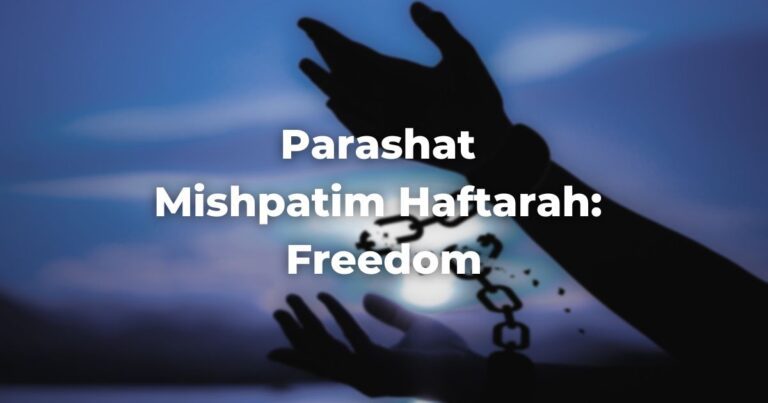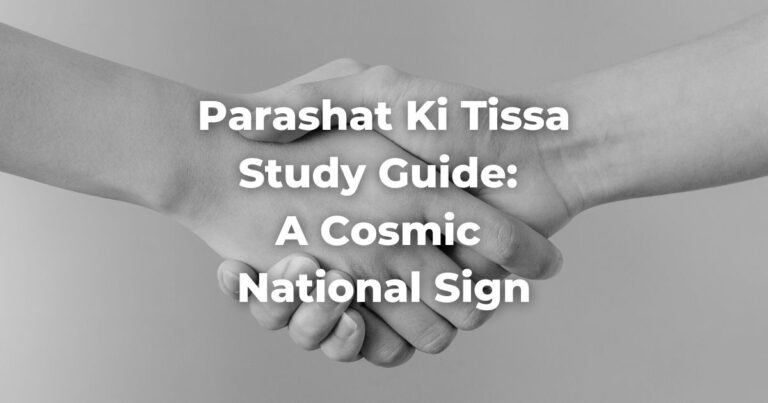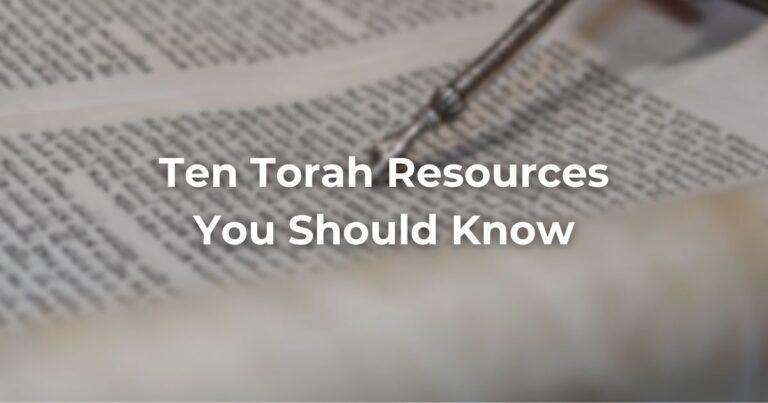Our parashah tells the story of Korach and his followers, who lead a rebellion to undermine the leadership of Moshe and Aaron in the wilderness.
God responds by orchestrating a ceremony involving firepans and flowering staffs to prove that Korach and his followers are in the wrong. The story ends, rather dramatically, with the earth swallowing up the rebels and silencing their claims once and for all. But the echoes of Korach’s rebellion continue to reverberate in the rabbinic imagination, and we might even think of the entire Talmudic project as an antidote to Korach.
Effective and Ineffective Arguments
In Pirkei Avot 5:19, the rabbis consider effective and ineffective kinds of arguments.
In some ways this is ironic, since this tractate of the MishnahA collection of rabbinic teachings edited in Israel around 225 CE. Organized in six sedaraim by subject matter and dealing with both ritual and civil law. Both the Jerusalem and Babylonian Talmud are expansive discussions of the Mishnah. Read more contains very little disagreement. Unlike other tractates, in which the rabbis offer conflicting opinions with regard to matters of Jewish law, Pirkei Avot consists of a compilation of the most famous or noteworthy statements attributed to each sage, with hardly any dissent.
In the fifth chapter, the rabbis teach that all arguments may be divided into two categories:
- There are arguments for the sake of heaven, which will ultimately endure, such as the arguments of Hillel and Shammai.
- And then there are arguments that are not for the sake of heaven, which will not ultimately endure, such as those of Korach and his company.
Arguments of Hillel and Shammai—Disputations Without Denigrations
In discussing the arguments of Hillel and Shammai, the TalmudReferring to one of two collections, the Jerusalem and Babylonian Talmuds, edited in the 6th century, that contains hundreds of years of commentary, discussion, and exploration of the ideas in the Mishnah. One could describe it as Mishnah + Gemara = Talmud Read more teaches (Eruvin 13b) that their two schools disagreed for three years, each insisting that the law should follow their opinion.
Essentially this was a meta-argument whose subject was not any one particular matter of law, but rather whose opinion should be followed across the board. Ultimately the matter was settled by a voice from heaven, not unlike the resolution in our parashah, where God intercedes to cause the earth to devour the rebels.
In the dispute between the schools of Hillel and Shammai, the heavenly voice declared that the law should follow Hillel—not because Hillel was right and Shammai was wrong, since in fact “these and these are the words of the living God”—both Hillel and Shammai spoke God’s truth.
It was not their particular dissenting opinions that mattered, but rather three aspects of the way in which they disagreed.
First, the school of Hillel always spoke in a manner that was respectful and forbearing, showing restraint when affronted.
Second, when they taught the law, they would always teach both their statements along with the statements of Shammai. Rashi interprets this to mean that whenever the school of Shammai offered a proof text for their stance, the school of Hillel would offer their own, different interpretation of that same proof text, thereby using the dispute as an opportunity to teach more TorahRefers to the first five books of the Hebrew Bible, the Tanakh, also called the Five Books of Moses, Pentateuch or the Hebrew equivalent, Humash. This is also called the Written Torah. The term may also refer to teachings that expound on Jewish tradition. Read more.
Finally, the school of Hillel would always state Shammai’s opinions before their own, first considering the opposing stance and then offering their ruling in response.
In all of these ways, Korach and his followers could not have been more different—they was no disputation without denigration.
Korach’s Disputations
Korach’s company spoke not from a place of respect and forbearance, but from a place of anger and entitlement: “Enough with you!” they lashed out at Moshe and Aaron, criticizing them for setting themselves above the rest of God’s congregation.
Moshe responded to Korah’s claims with a series of reasoned arguments—God set Korach and his followers apart as Levites, and Aaron never sought the priesthood in the first place—but the Torah does not contain any record of Korach’s response.
According to the midrashThis word is used in two ways, as both a concept and a literature. As a concept, midrash is the expansive interpretation of biblical texts. The term is used to describe the practice of rabbinic interpretation. As a text, it refers to specific collections of interpretations, particularly from the third to ninth centuries in the Land of Israel and Babylonia. Plural: Midrashim
Read more (Bemidbar Rabbah 18:8), Korach refused to engage:
“With all these arguments, Moshe tried to win Korach over, yet you do not find that the latter returned him any answer. This is because he was clever in his wickedness and thought: If I answer him, I know quite well that he is very wise and will overwhelm me with his arguments, so I shall be reconciled against my will. It is better that I should not engage.”
Korach was so afraid of losing the argument that he refused to listen to Moshe’s side. Moshe then sent for Datan and Aviram, two of the leading rebels, and tried to engage with them, but they insisted, “We will not come!” (Numbers 16:12). The midrash adds, “They too persisted in their wickedness and did not deign to answer him.”
Korach’s Claims
The Torah suggests—and the midrash leaves no doubt—that Korach and his followers stated their claims first and then disappeared, refusing to hear out the other side.
The Talmudic passage in Eruvin about Hillel and Shammai concludes with the lesson we are meant to derive from their style of argumentation: “This is to teach you that anyone who humbles himself, God exalts him; and anyone who exalts himself, God humbles him. Anyone who seeks greatness, greatness flees from him; and anyone who flees from greatness, greatness seeks him.”
Korach exalted himself and sought out greatness, insisting that he and his followers should have the same honor and responsibilities accorded to Moshe and Aaron. As a result, God humbled him and caused greatness to flee from him; he and his followers were swallowed up by the earth, and they and their arguments did not endure.
The Talmud (Sanhedrin 110a) imagines an even grimmer fate for Korach and his company.
The itinerant sage Rabbah bar bar Hannah recounts that he was once traveling through the desert with an Arab tour guide who offered to show him the place where the earth swallowed up Korach.
The Arab took a patch of wool, wet it, and placed it on the tip of his spear, passing it over some fissures in the earth.
The wool was singed from the heat.
Rabbah bar bar Hannah leaned down to look more closely, and he heard Korach and his followers singing from the underworld, “Moshe and his Torah are truth, and we are liars.”
In the rabbinic imagination, the rebels are consigned to eternity in the blazing underworld with no one to engage with; all they can do is repeat, in an endless damning loop, the truth they refused to acknowledge when they were alive on earth.
Not surprisingly, the Talmud quotes frequently from Hillel and Shammai, and rarely invokes the names of Korach and his followers.
As a literary corpus, the Talmud is driven by disagreement – dispute is the engine that propels the Talmud forwards. But in keeping with the school of Hillel, the Talmud will rarely dismiss an opinion from the outset. Rather, as Nahmanides noted (Sefer Milchamot to Sanhedrin 72a), Talmudic reasoning is about trying to come to terms with opinions that differ from one’s own.
Or, as Devora Steinmetz wrote in her article entitled “Talmud Study as a Religious Practice,” the Talmud teaches us that our encounter with a text—or with the words of a person sitting next to us—”demands that we try to make sense of it, that we experiment with ways of seeing whether it might be plausible… whether there is a way in which we can understand the words of the other on the way to developing our own best understanding.”
From Korach we learn how not to argue; from the study of Talmud, we learn how to argue in a way that refines us as thinkers and as human beings—we learn disputation without denigration.
See more: Parashat Korach
Originally posted as part of the Conservative Yeshiva at the Fuchsberg Jerusalem Center’s Torah Sparks. Support Torah learning from the Fuchsberg Jerusalem Center/Conservative Yeshiva for leaders and seekers around the world here.
Authors
-

Ilana Kurshan teaches Talmud at the CY. She is the author of If All the Seas Were Ink (St. Martin’s Press, 2017) and Why is This Night Different From All Other Nights (Schocken, 2005). She has a degree in History of Science from Harvard and in English literature from Cambridge, and has worked in literary publishing both in New York and in Jerusalem – as a translator, a foreign rights agent, and as the Books Editor of Lilith Magazine. Since October 2020, Ilana has been a regular contributor to Torah Sparks, FJC’s weekly parashat hashavuah blog.
View all posts -



The Fuchsberg Jerusalem Center (FJC) is a home in the heart of Jerusalem where leaders and seekers can find an authentic place in Jewish tradition to call their own. FJC offers opportunities to study, pray and explore within an egalitarian and inclusive setting, creating multiple pathways for finding personal and communal meaning.
View all posts






